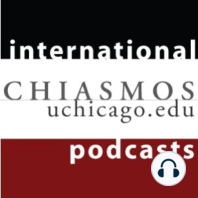43 min listen

“All the Missing Souls: A Personal History of the War Crimes Tribunals”
“All the Missing Souls: A Personal History of the War Crimes Tribunals”
ratings:
Length:
74 minutes
Released:
Jan 12, 2012
Format:
Podcast episode
Description
A talk by David Scheffer, Director of the Center for International Human Rights at Northwestern University. As senior adviser to Madeleine Albright and then as President Clinton’s ambassador-at-large for war crimes issues, David Scheffer was at the forefront of the efforts that led to criminal tribunals for the Balkans, Rwanda, Sierra Leone, and Cambodia, and that resulted in the creation of the permanent International Criminal Court. All the Missing Souls: A Personal History of the War Crimes Tribunals is Scheffer’s gripping insider’s account of the international gamble to prosecute those responsible for genocide, war crimes, and crimes against humanity, and to redress some of the bloodiest human rights atrocities in our time.
Introduction by Susan Gzesh, Executive Director of the University of Chicago Human Rights Program and Senior Lecturer in the College.
Introduction by Susan Gzesh, Executive Director of the University of Chicago Human Rights Program and Senior Lecturer in the College.
Released:
Jan 12, 2012
Format:
Podcast episode
Titles in the series (100)
"Interactions Between the Press and Foreign Policy" by CHIASMOS: The University of Chicago International and Area Studies Multimedia Outreach Source [audio]